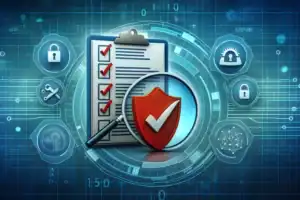CRIMINAL/COURT RECORD VERIFICATION
Criminal and court record verification checks an individual’s criminal history and involvement in legal proceedings. This verification is typically conducted by employers, landlords, licensing agencies, or other entities that require information about a person’s criminal background.
CRIMINAL/COURT RECORD VERIFICATION:
The specific information obtained during a criminal/court record verification can vary depending on the jurisdiction and the nature of the search.
The following details are commonly included:
- Criminal Convictions: This includes information about any convictions the person may have, such as the type of offense, the date of conviction, and the sentence imposed.
- Arrest Records: These records indicate if an individual has been arrested for a crime, even if they were not convicted. Arrest records may provide information about the charges, date of arrest, and any outcomes of the case.
- Pending Charges: This category includes any ongoing criminal cases or charges against the individual. It indicates that legal proceedings are in progress but no final judgment has been made.
- Court Proceedings: Information about an individual’s involvement in court proceedings can include civil cases, family law matters, bankruptcy, or other legal actions. It provides insights into the person’s history with the legal system beyond criminal matters.
- Probation or Parole: This information may be included in the record if an individual is currently on probation or parole. It signifies that they have previously been convicted of a crime and are under supervision as part of their sentence.
- Purpose of Criminal/Court Record Verification: The primary purpose of conducting criminal/court record verification is to assess an individual’s trustworthiness, character, and potential risk in certain contexts. Employers may conduct these checks to make informed hiring decisions, especially for positions involving security, finances, or working with vulnerable populations. Landlords may verify a potential tenant’s background to evaluate their suitability as a renter. Licensing agencies may require this information to determine eligibility for certain professional licenses or certifications.
- Sources of Criminal/Court Records: The sources of criminal and court records can vary depending on the jurisdiction. Common sources include local, state, or federal court databases, law enforcement agencies, correctional facilities, and registries specific to certain offenses (e.g., sex offender registries). Online databases and commercial background check providers may also aggregate this information for easier access.
- Limitations and Inaccuracies: It’s important to recognize that criminal/court record verification has certain limitations. Records may not always be up-to-date or comprehensive, as the time it takes to update public databases can vary. Additionally, there is a possibility of errors, omissions, or mistaken identity in the records themselves. Therefore, it’s crucial to use verified and reputable sources and consider additional factors when evaluating an individual’s suitability.
- Legal Considerations and Compliance: When conducting criminal/court record verification, complying with applicable laws and regulations is essential. Depending on the jurisdiction, there may be restrictions on what information can be accessed or considered and requirements for obtaining consent from the individual being screened. Familiarize yourself with the relevant laws and work with legal professionals to ensure compliance with privacy regulations and anti-discrimination laws, such as the Fair Credit Reporting Act (FCRA) in the United States.
- International Considerations: If you are conducting criminal/court record verification on individuals from different countries, it’s crucial to understand that record availability and accessibility can vary significantly. Legal systems and practices differ worldwide, and obtaining accurate information from international sources may present additional challenges. In such cases, it may be necessary to consult with local experts or engage the services of professional background screening agencies experienced in international record verification.
It’s important to note that the availability and accessibility of criminal and court records can vary by jurisdiction. Different countries, states, and localities have varying rules and regulations regarding public access to such information. Additionally, there may be limitations on what information can be shared due to privacy laws or other legal restrictions.
Fill out the form below to avail our Verification Services.
Require this Verification Service?
Frequently Asked Question (FAQs)
1. Why is criminal/court record verification important for businesses?
- Ensures safety and security.
- Protects the company’s reputation.
- Minimizes liability and legal risks.
- Helps comply with regulatory requirements.
- Safeguards sensitive information and assets.
- Maintains a productive work environment.
2.How can businesses conduct criminal/court record verification?
- Accessing public records and databases provided by local, state, or federal agencies.
- Engaging the services of professional background check providers or private investigators.
- Following legal requirements and obtaining the necessary consent from the individual being screened.
- Complying with privacy laws and regulations governing the use and storage of personal information.
- Ensuring fairness and avoiding discrimination by applying consistent screening criteria.
3. What information can be obtained through criminal/court record verification?
- Criminal convictions, including the type of offense, conviction date, and sentence imposed.
- Arrest records, indicate if an individual has been arrested for a crime.
- Pending charges, refer to ongoing criminal cases or charges against the individual.
- Court proceedings beyond criminal cases, such as civil disputes, family law matters, or bankruptcy.
- Probation or parole status, if the individual is currently under supervision as part of their sentence.
4. Can businesses conduct criminal/court record verification without the individual's consent?
In most jurisdictions, businesses are required to obtain the individual’s consent before conducting a criminal/court record verification. Consent ensures that individuals are aware their records will be checked and allows them to exercise their rights regarding the use and dissemination of their personal information. Businesses need to follow legal requirements and privacy regulations related to obtaining consent and using the information obtained during the verification process.
5. How should businesses handle adverse findings from a criminal/court record verification?
When adverse findings are discovered through a criminal/court record verification, businesses should follow a fair and compliant process. It is crucial to provide the individual with an opportunity to respond and explain the circumstances surrounding their criminal record. Engaging in an interactive dialogue can help businesses make an informed decision based on relevant factors, such as the nature of the offense, the time that has passed since the conviction, and the individual’s rehabilitation efforts. The decision-making process should comply with applicable laws and consider any legal requirements or guidance related to the employment of individuals with criminal records.









